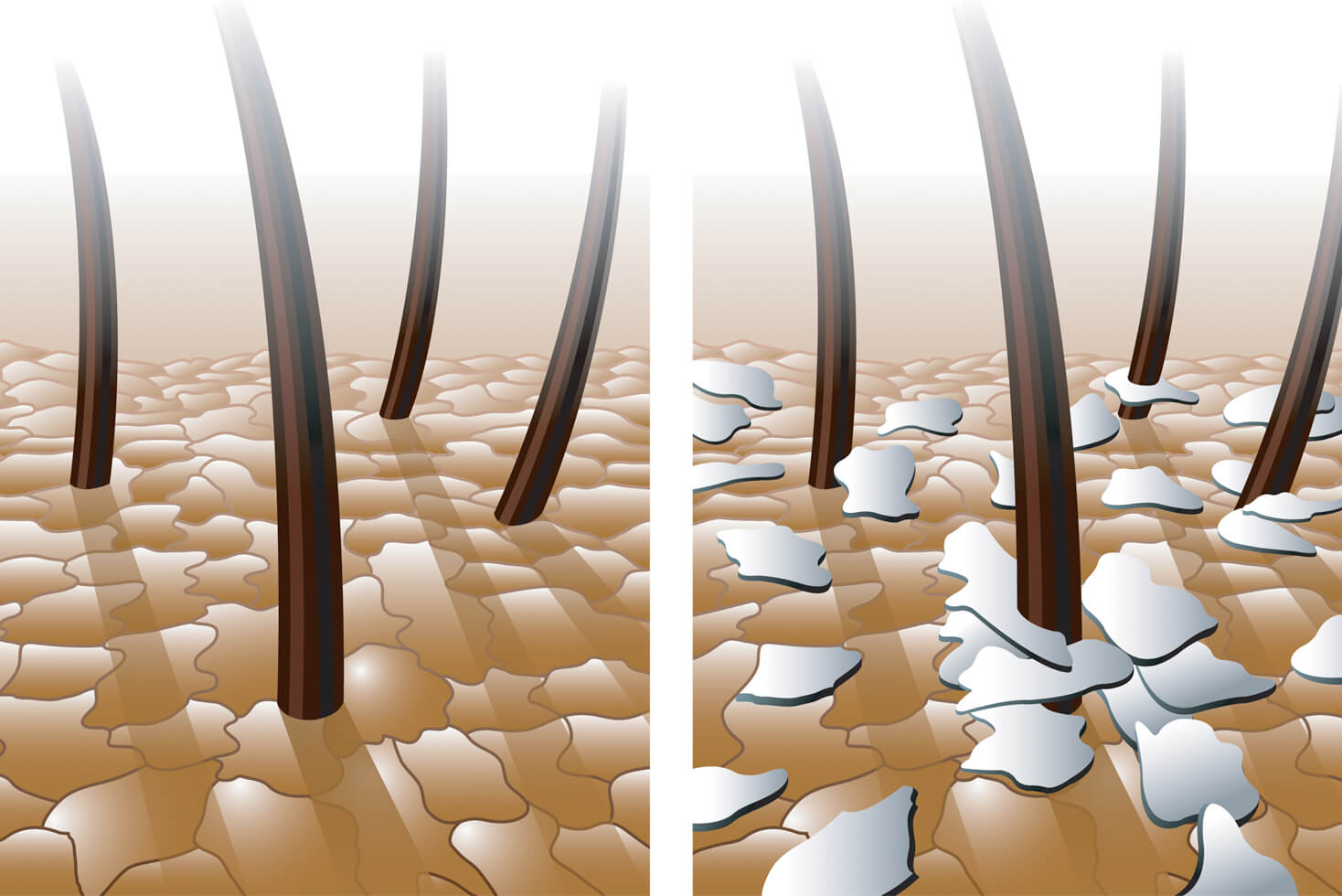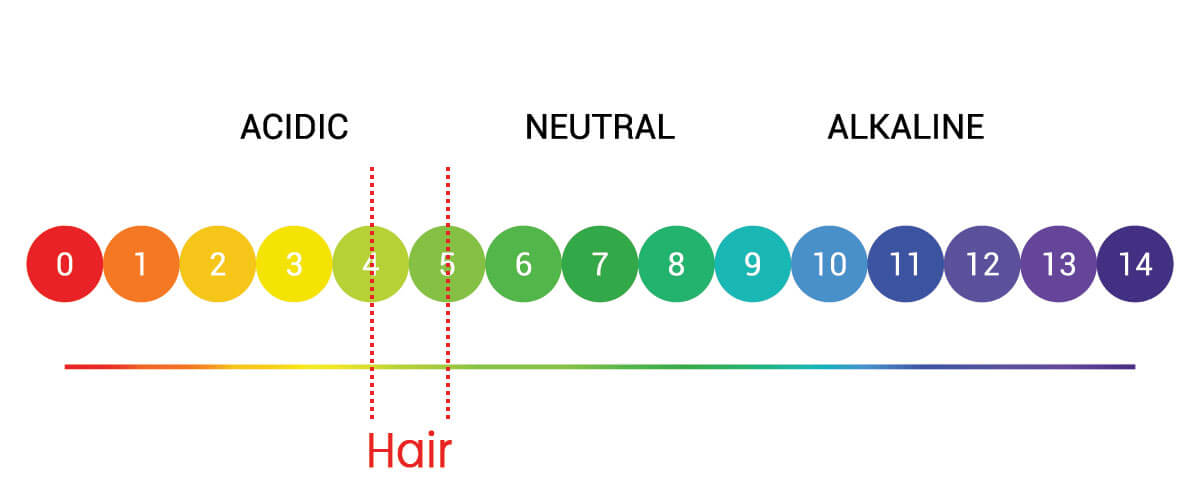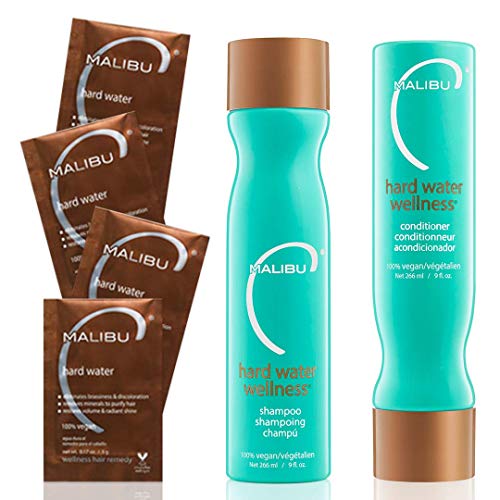Calcium Buildup in Hair – The Sneaky Culprit Choking Your Follicles
Updated on
This post may contain affiliate links. As an Amazon Associate, we may earn from qualifying purchases.

Calcium buildup in hair, if left untreated can cause a host of unwanted problems like dandruff, scalp inflammation, and hair loss.
The buildup from hard water chokes your hair from the roots and accumulates over time to clog the pores on your scalp.
So if you live in a hard water area, your hair looks lank, and your scalp itches all the time …
chances are, you’ve got too much calcium sitting in between your hair.
Why Calcium Buildup in Hair is Bad?
Calcium deposits on the scalp, also known as scalp calcification, happens when too much of this white substance accumulates in between your hair and hardens over time.
While calcium itself is not harmful to the human body, too much of it (also known as Hypercalcemia) can cause your body to react defensively.
For example, if the excess is preventing your skin from working in its natural way, your body will send defensive signals in the form of inflammation.
Think about it.
The pores on the scalp need to breathe and regulate follicular activities.
When excess calcium builds up over time, the pores cannot function.
Therefore, they gradually shrink, and the hair roots get overwhelmed.
Over time, this results in slow follicular activity and dry, brittle hair.
Can Too Much Calcium Make Your Hair Fall Out?
Yes. And there is enough research to prove that Calcium buildup from hard water causes thinning hair and severe hair loss.
For example:
This study published in the International Journal Of Tricology, which evaluates the baseline strength of hair when treated with Deionized water and hard water (containing Calcium Carbonate and Magnesium Sulfate).
The result concludes that there is a significant decrease in strength of the hair when washed with hard water, therefore suggesting hair is more likely to break and fall out.
Another research published in the International Journal of Preventive Medicine concludes that hard water and its calcium components are highly alkaline.
Now, if you didn’t know, hair and scalp sit on the lower end of the pH balance chart. Which means they are slightly acidic.

When your hair interacts with alkaline agents, be it in shampoos, color treatments, or hard water minerals, the fibers swell, and the cuticles flare up because of the chemical reaction.
This is not a healthy state for hair to be in.
PH Balance is essential as it keeps your hair healthy, smooth and resilient.
When alkaline water swells the fibers, they become highly porous, weak, and susceptible to breakage.
And the more your hair breaks easily, the faster you start to notice thinning from the top.
How to Prevent Calcium Buildup from Hard Water in Your Hair
Hard water is a concern for the majority of households in the U.S.
In fact, 85% to 90% of households have hard water either via their main water supply or residential wells.
The problem is inevitable.
Fortunately, you can take preventive actions and use the right products to stop your hair from the dangers of Calcium carbonates.
Here are the steps you can take to save your hair and scalp:
1. Get a Hard Water Shower Filter
Shower filters contain extra layers of filtration that trap heavy minerals from your main water supply.
Therefore, by the time the water hits your hair, it’s tripled-filtered and softened.
Think of a shower filter as a BRITA filter built into your shower.
Trust me, you’ll feel the difference straight away with light, soft, and voluminous hair.
Here’s the shower filter I recommend.
T3 Micro Source In-Line Shower Filter
2. Get a Water Softener
A water softener removes minerals that make your water hard.
It uses millions of microscopic beads to trap minerals and soften your water before it flows through your taps.
The best part of having a water softener installation is that it also protects your appliances like washing machine, kettle, and general plumbing from limescale buildup.
However, it’s not the cheapest solution. And more often than not, you’d need a professional to install it.
Check out this water softener system on Amazon.
Scalewatcher 3 Original Electronic Descaler
Reversal Osmosis Systems
If you have a little more budget in hand, you can invest in a reversal osmosis system.
This is one of the best ways to treat hard water for home consumption.
It removes a huge amount of minerals from hard water. It can even remove up to 99% of chlorine from water.
However, it needs good pre-filtering. And its filters need to be changed at least annually to keep it at top-notch performance.
Aquasana OptimH2O Reverse Osmosis System
3. Get the Malibu C Hard Water Shampoo
This is cheapest and most cost-effective solution I use.
The Malibu C company specializes in products that are scientifically proven to neutralize the harmful effects (also known as oxidization) from hard water on the skin and hair.
Their products work so well, that I’ve even got mine on repeat order on Amazon.
The science is simple:
- Chelating agents
- Antioxidants
- Vitamin C (Ascorbic acid)
These 3 ingredients are highly effective at eliminating and dissolving minerals. Therefore, they prevent hard water minerals for attaching to your hair during your shower.
What’s even better, they are kind to the skin, and your skin will feel soft too.
You also get a few packs of hard water demineralizers which can be used twice a week without the need to shampoo.
Yep. Go on and check out the Malibu C range now:
Malibu C Hard Water Kit
DIY Methods to Get Rid Of Hard Water Buildup In Your Hair?
If you love beauty DIYs, here are some home recipes you can also try to remove calcium deposits from your hair.
1. Apple Cider Vinegar Rinse
No. You won’t smell like pickles.
Trust me, the smell dissipates in less than 1 hour.
ACV is acidic, which helps to dissolve calcium. It also restores the pH balance of your locks and smoothes down the cuticles of your hair.
Keep in mind, though, if you have color-treated hair, you might want to avoid that. It may cause the dye to fade or run.
Now, to do so, combine one to two tablespoons of apple cider vinegar with one cup of cold water. If you have thicker or longer hair, simply double the amount.
You can use any kind of vinegar. But, apple cider is best for your locks.
You can also add any essential oil of your choice. Not only do they help mask the strong odor of the vinegar, but they also add additional benefits for your tresses.
For example, if you have dry hair, you can add lavender, myrrh, or peppermint. If you have oily strands, you can add rosemary, tea tree, lemongrass, or basil.
After creating the mixture, wash your hair as usual. Shampoo to get rid of most of the dirt and grime. And condition if you wish.
Then, pour the vinegar solution over your head, making sure that it covers your hair root to tip. Make sure to close your eyes because it will sting.
Gently run your fingers through your locks and massage your scalp. If you see bubbles forming, it means the solution is working on getting rid of the minerals.
After that, rinse your hair with cool water to seal your hair cuticles. This will leave your hair soft and silky. And it will restore the shine and body of once limp hair.
Only use it occasionally like once a week because overuse will dry your hair out.
Braggs Apple Cider Vinegar
2. Lemon or Lime Rinse
Much like the vinegar rinse, the acidity of the lemon and lime is what you are after here.
To create the formula, take a tablespoon of lemon or lime juice. And mix it with three cups of water.
After shampooing, pour it all over your head. Then, massage it into your scalp and hair. Leave it in for a few minutes then rinse with cold water.
Follow it up with a conditioner because lemon or lime tends to dry out the hair. This will help remove the minerals, and it will leave your locks shinier and bouncier.
The antiseptic properties of lemon and lime can also help combat dandruff. Take note though, using this formula over time can lighten your locks.
3. Baking Soda Rinse
Another ingredient from the kitchen that can help you get rid of harmful minerals in your hair is baking soda. You can do this in two ways.
The first one is a baking soda water rinse. For this, mix two tablespoons of baking soda with three cups of water.
Stir it until the baking soda is completely dissolved. And pour it over your locks, making sure it goes from root to tip. You can do so before you shampoo or after.
The last step is to rinse thoroughly and condition. Baking soda tends to be a little drying. So, make sure to keep your hair moisturized.
The other way is to create a baking soda paste. For this recipe, take two tablespoons of baking soda. Mix it with a half cup of water until it becomes a paste.
Apply that only to your scalp, not your strands, and leave it for a few minutes. Afterward, wash and condition your hair as you usually would.
Final Thoughts
Hard water can hit you with plenty of hair issues.
Calcium buildup, for example, when it crystallizes in your hair, it causes premature hair breakage and hair loss.
To avoid that, understand how to solve your hard water problems first and foremost.
Because even if you have remedies, the cycle of tear and repair will only do more harm to your hair in the long run.
About the Author
 Shehnaz Shirazi
Shehnaz ShiraziShehnaz Shirazi has been writing in the beauty and cosmetics industry for over 8 years, sharing her expansive hair care and beauty knowledge. Shehnaz researches and tests new hair care trends and publishes her insights here.




